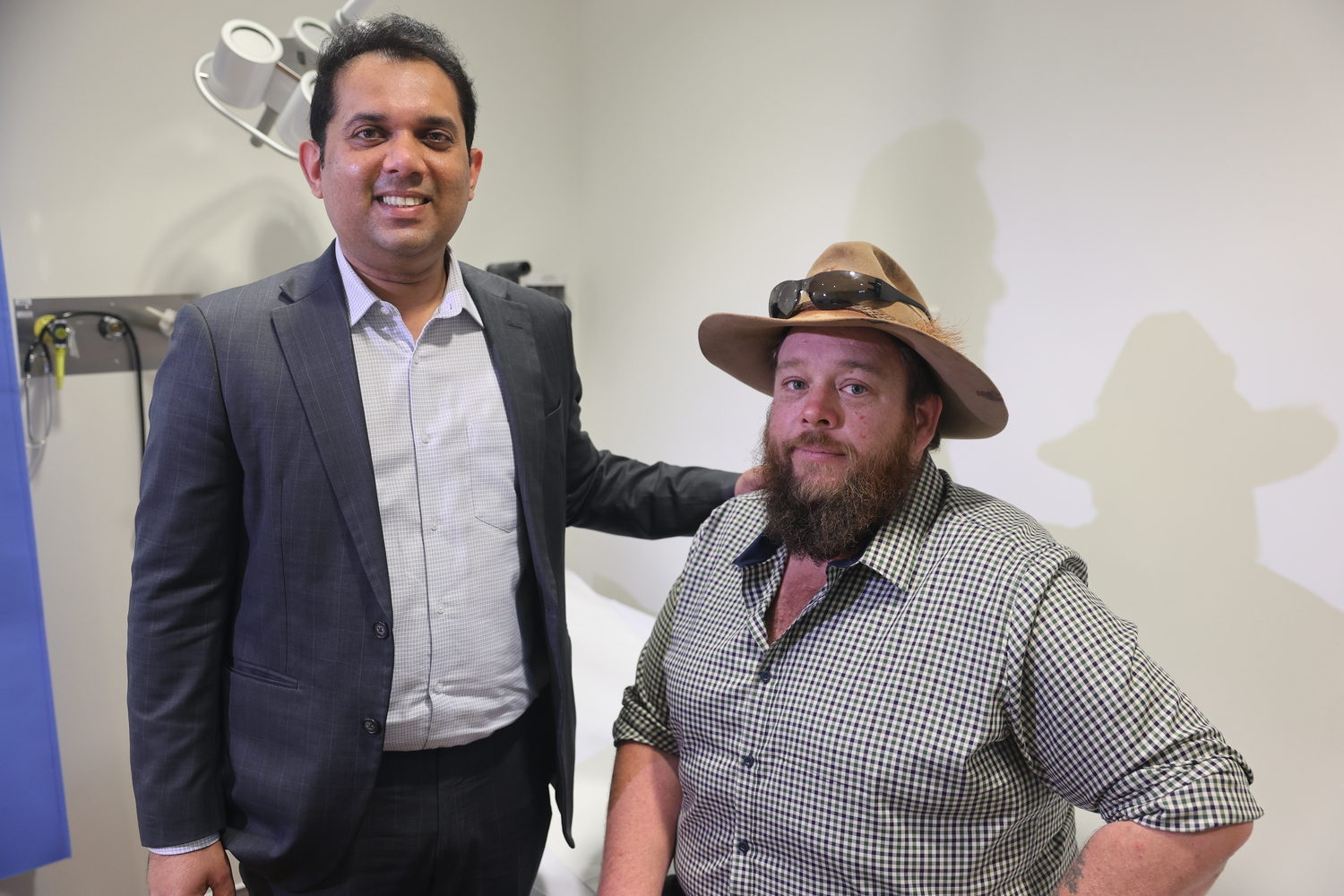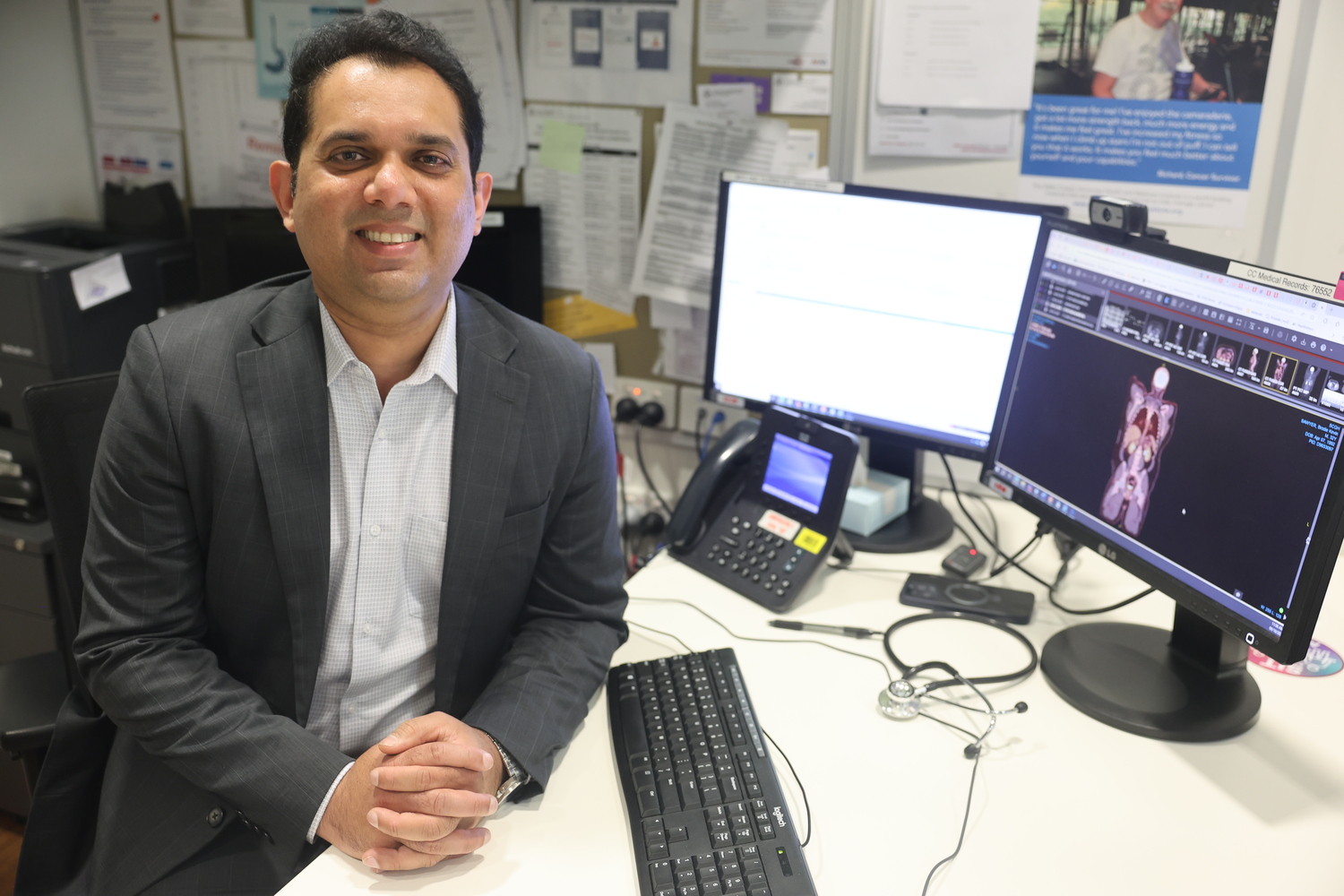
Doctors at Sir Charles Gairdner Hospital (SCGH) have been able to cure cancer in two patients thanks to the use of a new medication.
Oncologist Dr Rajiv Shinde told Medical Forum the recent use of Dostarlimab as an immunotherapy drug for young patients with rectal cancer was part of what he sees as a change in the treatment paradigm around cancer.
The team at SCGH, where Dr Shinde works, was able to access this medication for free from the manufacturer as part of a compassionate access scheme.
While it has been approved by the Therapeutic Goods Administration (TGA) for use in certain cases of endometrial cancer and included on the pharmaceutical benefits scheme for this use in 2024, accessing the medication for rectal cancer patients could cost tens of thousands of dollars.
“Dostarlimab has been used in trials internationally, which has shown some really amazing responses,” Dr Shinde said.
“We would have to wait many years for these approvals to come through, but sometimes we can request companies who make these products to allow earlier access on a compassionate basis for our patients.”
Dr Shinde said while the data around the use of Dostarlimab for rectal cancer was “still evolving” it had been promising enough to trial for two patients with locally advanced cancer.
RELATED: A surge in cancer cases – are we prepared?
“Usually, the standard of care would be having chemotherapy, having radiotherapy, and looking at surgery, which has its own potential complications,” Dr Shinde said.
“We’ve been able to replace those traditional treatments by giving immunotherapy.”
Administered as an injection every three weeks, which took about an hour each time, it was given across nine cycles.
“Both the patients had remarkable responses, even after two or three rounds of treatment. Their symptoms disappeared, bleeding and the pain that is caused by the cancer goes away and the scans showed a complete response,” Dr Shinde said.

He said it was amazing to be part of the team who helped cure these patients of cancer, adding that immunotherapy treatments could play a greater role in cancer responses in the future.
“It shows us how newer cancer treatments are evolving, the whole treatment paradigm is changing and that, hopefully in the future, immunotherapy or targeted therapies and other emerging treatments are the way to go forwards.
“It could potentially completely evolve the way we look at and treat cancers.”
The immunotherapy drug has shown extraordinary results for a select group of rectal cancer patients.
“Patients with a specific genetic feature, it’s called a mismatch repair deficiency, for those patients, this approach is life changing,” Dr Shinde added.
“Essentially, the way it works is it helps the body’s own immune system to recognise and attack the cancer cells.”
He said other cancer types that involved this deficiency may also be good candidates for immunotherapy.
While these two cases will add to the overall evidence around the use of Dostarlimab, they are not part of a specific trial.
“These real-world experience data will give more confidence to the prescribers and patients with this type of cancer,” Dr Shinde said.
He was hopeful that increased data coming from trials of the medication would identify the patients who could benefit most from this medication and lead to it being added to the PBS for use with certain rectal cancer patients.
Want more news, clinicals, features and guest columns delivered straight to you? Subscribe for free to WA’s only independent magazine for medical practitioners.
Want to submit an article? Email [email protected]

